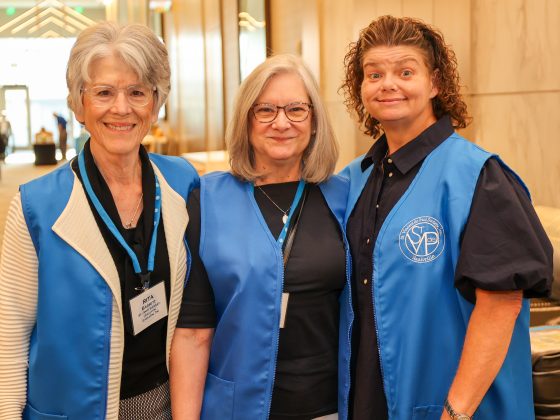Conference meetings are intended to be “mutually fulfilling” gatherings where members joyfully share their experiences, grow in faith and make plans to serve others. Sometimes, however, members do not always agree on how to go about these activities and the meetings are far from mutually fulfilling. Managing meeting conflict is almost never at the top of any Conference president’s list of favorite undertakings, but it doesn’t need to be a negative experience. In fact, sometimes it can be healthy and help your Conference grow. Here we share a few tips to better prevent and manage conflict within your Conference meetings.
To prevent Conference meeting conflicts:
- Send out a detailed, specific agenda ahead of time so that members know how the meeting will proceed. Make it clear that the meeting will unfold in an organized, respectful manner.
- Know the strengths and weaknesses of the members in your Conference, and tailor the discussion style to maximize the strengths and minimize the weaknesses.
- Encourage frequent communication among Conference members outside of meetings so that members feel informed and are not taken by surprise.
- Ensure that minutes are kept of Conference meetings, including specifics about decisions made and timeframes. Distribute minutes in advance to all Conference members to reduce inconsistencies in memory.
During a Conference meeting:
- Make sure all Conference members have the chance to speak and be listened to respectfully.
- For significant topics, give members a few moments to process the question at hand and perhaps write down a few notes before starting the discussion.
- Present things in such a way that indicates the Conference is working through issues together.
- Try to anticipate conflict and address the issue before it happens. Be aware of members’ nonverbal communication and apparent discomfort.
- Encourage the Conference to be specific in its decisions to avoid ambiguity about when or how something will be done (i.e., “Jesse will contact Father Mike by noon on Friday,” not “Jesse will contact Father Mike soon”).
Should a conflict arise:
- Pause briefly to allow the Conference and its members a chance to temper emotions and think of how to say things in a thoughtful, respectful fashion.
- Repeat/summarize what you have heard Conference members say so they know you heard them.
- Neutralize personally-directed comments by restating them in terms of objective qualities, issues or actions, not people themselves (i.e., “Maria tries to avoid us all of the time and refuses to answer our phone calls” to “You feel that Maria is not making herself available to the needs of the Conference,” or perhaps even better, “You feel that our current system of reporting home visits is not working”).
- Redirect tangents back to the agenda item under discussion.
- Restate and reframe the larger context of the situation to keep the topic in perspective.
- Identify and outline the points of agreement that exist between disagreeing parties.
- Find a “grain of truth” in an opposing viewpoint and use that to begin to build consensus.
- Strive to arrive at group consensus; avoid voting on a divisive topic if possible.
- Place the discussion on hold and ask the Conference spiritual advisor to lead the Conference in a prayer before continuing.
If the Conference is stuck:
- Reduce unknown factors and fear by assigning a subgroup to research the topic a bit more and report back at a future meeting.
- Table the conversation until a future meeting.
- Discern whether someone perceives a threat to themselves or to their interests. If so, address/discuss the issue in a kindly fashion that preserves their dignity.
- If the topic is hijacking the meeting, arrange for either the whole group or those members most invested in the topic to hold a separate meeting in the future to discuss it.
- If only one individual is upset about an issue for a prolonged period of time, ask to meet separately with him/her after the meeting.
- Consider whether another factor(s) may be contributing to rigidity in mindset or aggression in verbal response.
- While maintaining confidentiality, seek advice from fellow Conference/Council presidents, National Office staff, committee chairs or other Vincentian peers. Many other Vincentian leaders may have faced similar circumstances and have suggestions based on what worked for them.
Know that you are not alone in facing difficult Conference situations at times. Facing conflict may not be your favorite part of serving the poor, but your adept handling of it will allow for so much more love, respect, commitment and loyalty to grow among Conference members and toward those in need as a result.
Unoriginal material in the above list was drawn from the following articles. If you would like further information, follow the links below:
- “How to Resolve Conflicts – Without Killing Anyone” from the Texas Center for Women’s Business Enterprise, August, 1997.
- “The 3 Secrets to Conflict Resolution” by August Turak on Forbes.com, September 10, 2012.
- “How to Diffuse Workplace Conflict at a Team Meeting” by Nicole Long, studioD on smallbusiness.chron.com



